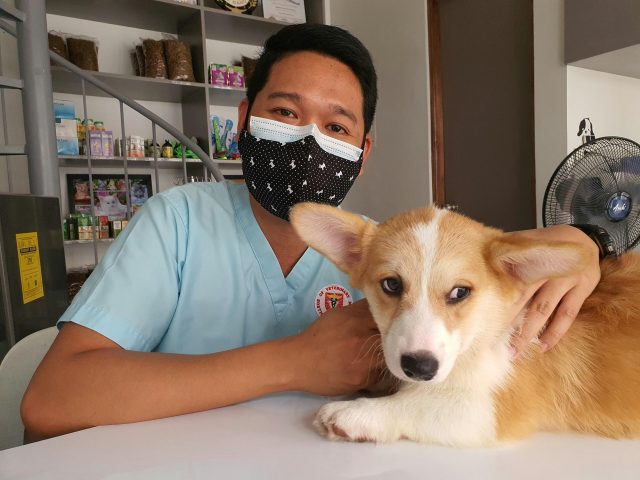In the quiet hum of our daily lives, our pets often remain the unsung heroes, filling our homes with boundless joy and unwavering companionship. Their playful antics and gentle nuzzles are the heartbeat of our families, a rhythm we come to cherish deeply. But what happens when that heartbeat falters? When our furry friends, who seem invincible in their boundless energy, face the silent struggles of heart conditions?
Enter the compassionate world of veterinarians, the skilled guardians of our pets’ health. With a blend of medical expertise and genuine empathy, these professionals embark on a journey to uncover the mysteries of pet heart conditions. From the initial diagnosis to the delicate balance of treatment, veterinarians are our allies in ensuring that our pets continue to lead happy, healthy lives.
Join us as we delve into the intricate process of how veterinarians diagnose and treat pet heart conditions, exploring the marvels of modern veterinary medicine and the heartwarming dedication that drives it. Whether you’re a pet parent seeking knowledge or simply a lover of all things furry, this article promises to be a heartfelt journey into the world of veterinary care.
Listening to the Heartbeat: Essential Diagnostic Tools Every Vet Uses
Veterinarians rely on a suite of diagnostic tools to ensure they can accurately assess your pet’s heart health. At the forefront is the stethoscope, a simple yet indispensable device that allows vets to listen for murmurs, irregular rhythms, and other anomalies. Beyond this, advanced technology steps in to provide a more detailed picture.
- Electrocardiograms (ECGs): These trace the electrical activity of the heart, helping vets identify arrhythmias and other electrical disturbances.
- Ultrasound (Echocardiography): This imaging technique provides a live view of the heart in action, revealing structural issues and functional performance.
- Blood Pressure Monitors: Just like in humans, monitoring blood pressure in pets can offer crucial insights into cardiovascular health.
- X-rays: Radiographs help visualize the size and shape of the heart and lungs, aiding in the detection of heart enlargement or fluid buildup.
These tools, combined with a vet’s expertise, form a comprehensive approach to diagnosing heart conditions, ensuring your furry friend receives the best possible care.

Unmasking Silent Symptoms: Early Warning Signs Pet Owners Should Watch For
Our furry friends often can’t tell us when something’s wrong, making it crucial for pet owners to be vigilant about subtle changes in their pets’ behavior and health. Early detection of heart conditions can make a significant difference in treatment outcomes. Here are some silent symptoms to watch for:
- Coughing or difficulty breathing: These signs can often be mistaken for respiratory issues but may indicate heart problems.
- Fatigue or reluctance to exercise: A sudden decrease in energy or unwillingness to play could signal that your pet’s heart isn’t pumping efficiently.
- Changes in appetite: Heart conditions can sometimes cause pets to lose interest in their food.
- Weight loss or gain: Unexplained changes in weight can be a red flag for underlying heart issues.
- Swollen abdomen: Fluid accumulation in the belly is a common sign of advanced heart disease.
Being proactive and consulting your veterinarian at the first sign of these symptoms can lead to earlier diagnosis and more effective treatment, helping to ensure your beloved pet stays healthy and happy.

Crafting a Care Plan: Personalized Treatment Options for Pet Heart Health
When it comes to managing your pet’s heart health, a tailored care plan is essential. Veterinarians begin by thoroughly assessing your pet’s specific condition, considering factors such as age, breed, and overall health. Personalized treatment options are designed to address these unique needs, ensuring the best possible outcome for your furry friend.
Here are some key elements that may be included in a customized care plan:
- Medications: Tailored prescriptions to manage symptoms and improve heart function.
- Dietary Adjustments: Specialized nutrition plans to support cardiovascular health.
- Exercise Regimens: Controlled activity levels to maintain fitness without overexertion.
- Regular Monitoring: Scheduled check-ups and diagnostic tests to track progress and make necessary adjustments.
- Holistic Therapies: Integrative approaches such as acupuncture or supplements to enhance overall well-being.

Nurturing Hearts at Home: Daily Habits to Support Your Pets Cardiovascular Well-being
Veterinarians employ a variety of techniques to uncover the mysteries of your pet’s heart health. Auscultation is often the first step, where a vet uses a stethoscope to listen for abnormal heart sounds, murmurs, or irregular rhythms. Diagnostic imaging such as X-rays and echocardiograms provide a visual of the heart’s structure and function, revealing conditions like enlarged hearts or fluid buildup.
Once a diagnosis is made, treatment plans are tailored to your pet’s specific needs. Common interventions include:
- Medications: Prescriptions can help manage symptoms and improve heart function.
- Dietary Changes: Specialized diets can reduce the workload on your pet’s heart.
- Exercise Regimens: Gentle, regular exercise helps maintain cardiovascular health without overexertion.
- Surgery: In severe cases, surgical options may be considered to correct anatomical issues.
By working closely with your veterinarian, you can ensure your pet receives the best possible care, fostering a healthy heart and a happy life.


































